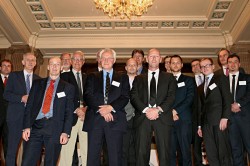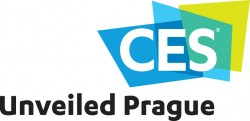Czech and German nanotech entrepreneurs desire collaboration
7 May. 2015 | CzechInvest | The first Czech-German nanotechnology conference was recently held in Prague. Though there are extensive opportunities, few are taking advantage of them.
The first Czech-German conference focused on doing business in the nanotechnology sector was held in Prague on 5 May 2015. Titled “Building Blocks of the Future”, the conference was attended by approximately sixty entrepreneurs and officials from both sides of the border. The event was organised by CzechInvest and German Trade & Invest (GTAI).
Czech and German nanotechnology firms are seeking opportunities to collaborate. Representatives of these firms concur that there is a lot of untapped potential between the two countries.
“Czech firms don’t know what’s happening in Germany, just as German firms are unaware of what’s being developed in the Czech Republic,” said Jiří Kůs, chairman of the recently established Association of the Nanotechnology Industry.
The conference was attend by, among others, German Ambassador Arndt Freytag von Loringhoven and the president of the Czech-German Chamber of Trade and Industry, Rudolf Fischer.
The main objective of the conference was focused on collecting topics and ideas for possible collaboration. “Thanks to this, we can find out where there is potential and define how we can jointly prevail on the market,” said Rainer Müller, senior manager for nanotechnology at GTAI.
“In the Czech Republic, for example, you have succeeded in transforming the traditional textile industry into production of functional textiles using nanofibres, nanosilver and similar technologies. I see further potential in traditional industrial sectors such as the automotive industry and production technologies – functional coating materials and, of course, nanoanalytics,” Müller explained.
Czechs and Germans could collaborate in practically all main nanotechnology segments. The Czech Republic is one of the incubators in the area of nanofibres. Another area that is undergoing very promising development is photocatalysis, i.e. production of coating materials containing titanium oxide nanoparticles, which purify air. Nanotechnologies can also be used for storing energy in 3D batteries, treating contaminated wastewater and in medicine for generation of new organs and in wound-healing applications.
Czech-German cooperation is not hindered by regulations. Thanks to the fact that standards have been harmonised within the European Union, we are building a common foundation with Germany. The integration of Europe makes that significantly easier for us,” said Jiří Kůs.
The partners of the first Czech-German nanotechnology conference were the Nano in Germany group and the Nano Regions Alliance.









